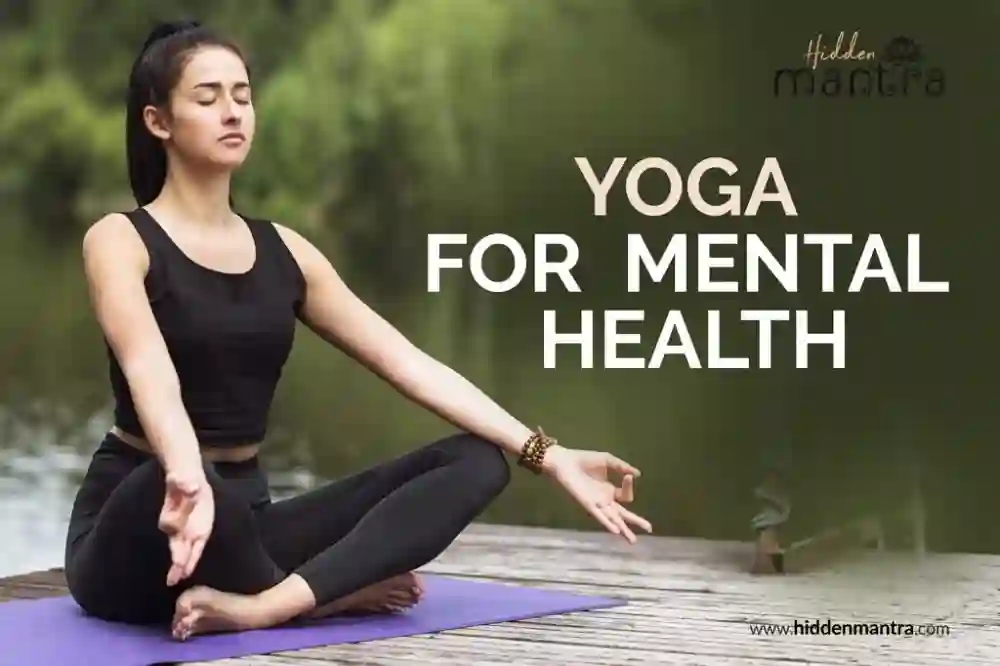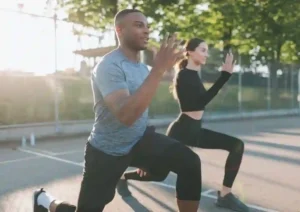The Power of Meditation for Mental and Physical Health

Let me paint you a picture. You’re sitting at your desk, surrounded by the usual clutter—coffee cups, half-open email tabs, a whole bunch of I’ll deal with this later thoughts. And in that moment, you realize: You need to breathe. Not just the “I’m breathing to stay alive” kind of breathing, but the “I need to reset and find my zen” kind. That’s when it hits me: meditation for mental health.
I’ll be honest—I wasn’t always a believer in meditation. The idea of sitting still for any length of time felt like an Olympic challenge. I thought, “Who’s got time for that when there are 500 things to do?” But over time, meditation became the secret weapon I didn’t know I needed. And now? I’m the first person to recommend it when life gets messy. And trust me, it gets messy.
So, What’s Meditation, Anyway?
I used to think meditation was all incense and chanting. But no—turns out it’s more like pressing the “pause” button in the chaos of life. It’s about focusing your mind on something, whether that’s your breath, a mantra, or just some quiet reflection. No deep philosophy required—just the art of being still.
I first dipped my toes into meditation after reading somewhere (can’t remember where—probably a meme) that it could reduce anxiety. At the time, my anxiety levels were like a Netflix show on auto-play—endless. So, I figured I’d give it a shot. And guess what? It worked.
Science Time: The Brain and Meditation
Here’s where it gets a little nerdy, but stick with me. Studies show that meditation actually changes your brain. The prefrontal cortex (that’s the part responsible for decision-making and self-control) gets thicker. You start to feel more in control of your reactions, less like a pinball being batted around by stress.
Also, when you meditate, your brain releases less cortisol (that pesky stress hormone). Which is great news because, y’all, I don’t know about you, but my stress was through the roof before I got into meditation. And it wasn’t just in my head. When I started to make meditation a habit, I found myself not freaking out over every little thing. That, my friends, is magic.
The Mental Health Benefits of Meditation
Let’s get into the good stuff. Here’s how meditation for mental health can really change the game.
1. Bye-Bye, Anxiety
You ever been in a situation where your brain just won’t turn off? That was me, every single day. The funny thing? Meditation gave me the power to pause that endless loop of worrying about what I said to Karen at the coffee shop 3 days ago. It’s like pressing stop on a tape that’s been playing nonstop.
Research shows that mindfulness meditation reduces anxiety—like, a lot. Seriously. The studies say something like 30% reduction in anxiety symptoms after just a couple of months. I’m not a doctor, but when I started, I felt a noticeable difference in how often my anxiety would take over. Slowly, I became more aware of my thoughts and started managing them instead of letting them run the show.
2. Mood Boost (Seriously)
Okay, here’s the kicker: Meditation doesn’t just reduce anxiety. It actually boosts your mood. Fast forward past three failed attempts to fix my mental health with expensive therapy, and I realized that just sitting in silence for 10 minutes a day worked wonders. It’s not a magic fix, but after practicing for a while, I noticed I didn’t wake up feeling like I was about to enter a mental battle every single day. Imagine that. A good mood without coffee. Shocking, right?
Honestly, I learned the hard way—meditation doesn’t cure everything, but it sure makes a difference in your emotional resilience.
3. Sweet, Sweet Sleep
Now, let’s talk sleep. Y’all, my sleep used to be terrible. I’d lay in bed, staring at the ceiling, going over every single embarrassing thing I did in middle school. You know the drill.
But after incorporating meditation, I actually started sleeping better. Not like the “fall asleep after scrolling through Instagram” kind of sleep, but the “I’m actually resting and recharging” kind of sleep. Research backs me up here, too—studies show that mindfulness meditation can significantly improve sleep quality and reduce insomnia. So yeah, it works.
The Physical Health Benefits of Meditation
Alright, let’s talk about your body—because meditation isn’t just a mental workout. It’s a whole body thing.
1. Lower Your Blood Pressure (Seriously)
I used to think that blood pressure was one of those things you only had to worry about when you hit 50. Turns out, my 30s weren’t as immune to high blood pressure as I thought. But guess what helped? Meditation. It’s actually been proven to lower blood pressure.
In a study (I mean, they always have studies, don’t they?) meditation helped people lower their blood pressure enough that it reduced their risk of heart disease. No joke. It worked for me too. I stopped thinking my stressful job would make my heart explode, and I could focus on my health instead of just worrying about it.
2. Chronic Pain? No Thanks
So, I’m no stranger to chronic pain—thanks, old sports injuries—but when I started meditating, I noticed my pain didn’t take over my day as much. And no, I’m not saying it cured my back pain like some miracle, but meditation did help me manage the way I perceived the pain. Studies show that mindfulness can help individuals tolerate chronic pain better. Pretty wild, huh?
Here’s a fun tidbit: I once read a study that suggested talking to plants might make you feel better in stressful times (Victorians believed it helped with “madness”). Now, I don’t exactly have a conversation with my succulents, but I’ll admit I do talk to my ferns sometimes.
3. Immune System? Stronger Than Ever
You’d be surprised how many health issues stress can cause. From headaches to more serious conditions, stress weakens your immune system. But, meditation? It strengthens it. By reducing stress and promoting a relaxed state, meditation lets your body fight off illness more effectively.
I’m no doctor, but I haven’t gotten sick nearly as much since I started meditating. I like to think I’m basically invincible at this point.
4. Breathing Better (Who Knew?)
Remember when I said I didn’t believe meditation could help with anything physical? Well, I stand corrected. The simple act of focusing on your breath can actually help with respiratory function. By practicing deep breathing during meditation, your lung capacity improves, and you get a lot more oxygen in your body. Weirdly, it’s like your whole body just feels more… alive.
How to Start Meditating (Without Looking Like a Weirdo)
So, you’re sold. You want to start meditating but have no clue where to begin. Here’s what worked for me (and, honestly, I’m pretty lazy, so if I can do it, so can you):
1. Start Small (Like, Tiny)
I didn’t jump into 20-minute meditations right away. No, no. I started with 5 minutes. Five. Just sit down, close your eyes, and breathe. When your brain starts to wander (and it will), just gently bring it back. It gets easier. Promise.
2. Use Apps (They’re Actually Helpful)
The first time I meditated, I thought I was going to mess it up. But then I found guided meditation apps like Headspace and Calm, and I was sold. They walk you through it. If I can do it with a voice in my ear guiding me, so can you. Trust me.
3. Consistency Is Key
I won’t lie—some days I didn’t want to meditate. But the trick is to just do it anyway. Even five minutes is better than nothing. Over time, it becomes a routine, and you’ll actually start looking forward to it.
4. Find Your Tribe
Not into meditating alone? I get that. Find a local group or take a class. There’s something about being around others that makes it feel more real, and it helps with accountability. Plus, there’s a wicked sense of community in those groups.
The Bottom Line
So, there you have it. Meditation for mental and physical health isn’t some mystical art—it’s a tool that can change your life. Maybe you won’t become the Buddha of your neighborhood (I know I didn’t), but it’ll help. I promise. So go ahead—give it a shot. It won’t hurt. Well, unless you try meditating while standing on one leg. But that’s a different story.







